Creation of the Timeline Game
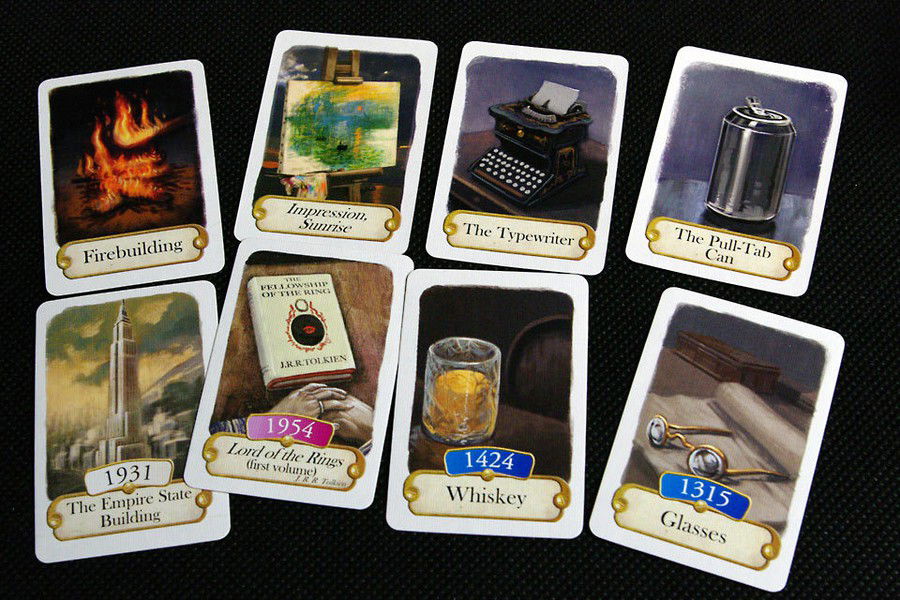
The card game Timeline was developed by Frédéric Henry in partnership with the famous company Asmodee. Its first version was released in 2010, and its quick and positive reception by the public has kept it going to this day.
The main idea of its author was to create a portable and easy-to-learn game that is also intellectually challenging.
Game Mechanics
The Timeline card game can be played by 2 to 8 people and consists of a set of 55 cards representing historical events. Each card features, on both the front and back, an image of an event along with its description, and on the back, a date.
The objective of the game is to build a correct timeline by arranging the events on the cards in chronological order.
The game starts with a random card from the deck placed in the center of the table with the back facing up, allowing all players to see the initial year of the timeline. Each participant receives 4 to 5 cards with the back facing down, meaning they only know the image and description of the event while the date remains hidden.
In each turn, players choose a card from their hand and decide where it should be placed on the timeline, taking into account the already revealed dates and aligning them chronologically. After choosing the location, the card is flipped to reveal the date. If the player correctly places it, the card stays in the timeline; however, if they are wrong, the card is discarded, and the player must draw a new one from the deck.
The game concludes when a player gets rid of all their cards, demonstrating their skill as a historian. Timeline challenges all players to either try to memorize when these events occurred or use strategy and logic to improve their estimations.
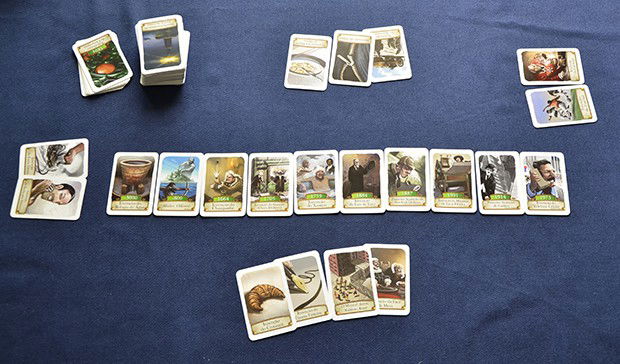
Timeline Variants
In addition to its ease and portability, Timeline has become popular due to its variety of themes. Yes, the game is not limited to a single version. In Brazil, you can find five variants, and in some other countries, there are even more regional versions.
“Brazil”
In this edition, we have 55 historical events from our country, from the time before its discovery to recent events, including the year 2020. This provides significant contemporaneity, attracting even younger players.
"Historical Events"
In this version of Timeline, we will have historical events from around the world. We can explore from the fall of the Berlin Wall to the Pyramids of Giza. This edition is well-received by players fascinated by world history and its happenings.
"Inventions"
In this version, players are challenged to identify the order of the most important inventions, such as the creation of electricity, glass, or even the microwave. In this variation, there is a curiosity: many inventions are easier to place in chronological order based on logic. For example, considering the creation of glass and the light bulb, you can get a good idea of which came first.
"Discoveries"
This edition focuses on scientific and geographical discoveries, such as the moon landing, the printing of Shakespeare's works, and presentations that left a mark on human history.
"Various Historical Events"
In this expansion, it is possible to find a bit of each category, with some events that could even be mixed from different themes. In this case, the author chose to create a new edition with events resembling sports and music. Sometimes, this edition resembles the "Discoveries" edition.
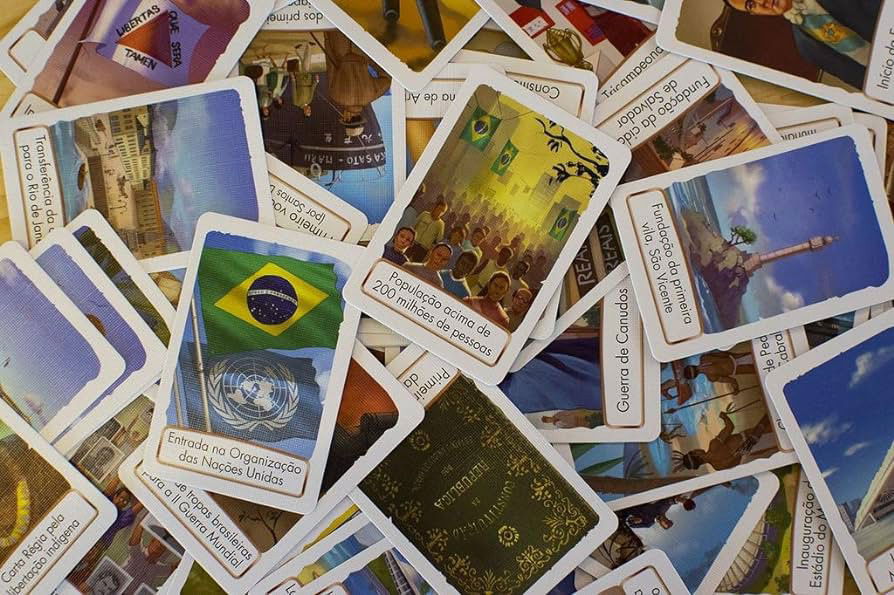
Pedagogy in Timeline
The most notable characteristic of Timeline is its ability to provide both fun and learning. While players enjoy their discoveries, they also learn, even if this is not immediately noticeable during the game.
Simple Logic
At the beginning of the game, this feature often goes unnoticed. However, as the timeline becomes more complex, a significant difference in plays can be observed. Initially, participants tend to make quicker moves, often without deep analysis. However, as time passes and more games are played, moves become more strategic and measured.
Players start analyzing the timeline and try to establish logic between the cards in their hands and the cards already placed. Often, this logical thinking extends to the relationship between cards in hand to maintain a consistent timeline.
Learning
Timeline ends up providing active and enjoyable learning to players, covering numerous works, inventions, and discoveries from around the world. Instead of simply memorizing dates and playing, players immerse themselves in a process of solving the timeline and learn what came first and what came later.
One could say that this game offers a playful approach to answering the age-old question: "Which came first, the chicken or the egg?"
Memorization
Despite everything, the game can also be played with the goal of memorizing dates, although this is almost impractical due to the large number of cards per version and the possibility of mixing games. As players continue to play, especially a single version, this fact can be noticed due to the rapid rotation of cards.
Some players may, even unconsciously, memorize the dates of various cards. This memorization skill has various applications in our daily lives and can even be used as a treatment for people with some form of attention deficit.
Development of Historical Knowledge
How many times have we been caught in boring history classes that made us feel sleepy? However, in this game, we won't have detailed minutiae about the depicted events, but we will certainly have a lesson on the order of historical events worldwide.
Sometimes, we may even quickly recall a topic and connect various points, thus understanding the evolution of humanity.

Popularity
Why has this game become so popular among numerous players worldwide and in different eras?
The greatest characteristic of this game is its easy accessibility. Its rules are few, simple, and easy to learn, with an explanation that lasts, on average, only 5 minutes or even less. Additionally, there is no need for prior and in-depth knowledge about the history of our planet, making it suitable for all age groups, albeit with some caveats.
The game's playtime is also a significant attraction, as each round lasts, on average, 15 to 30 minutes, making the game an ideal option for quick breaks during work or on trips, where you can carry it in your pocket and play on a small table.
The variety of editions and themes also attracts many players. Some people may not be interested in one theme or another, but, as mentioned earlier, only in Brazil can we find five different themes, and if you have patience and contacts, you can obtain other editions released in other countries. Moreover, some people seeking a more educational character also become interested in the game, as it is a way to involve young people in a different type of teaching, given that the game involves dates.
Despite its simplicity in rules and gameplay, do not be deceived - this game demands special attention from participants, especially when mixing editions. Multiple themes with distinct dates, and in the case of mixing editions, themes that are often unrelated, make the game even more thrilling.
In the end, we can talk about its high replayability. Even with just one edition containing 55 cards, you will never know the order of events you will get, and your friends won't either. This makes the timeline never the same, maintaining the challenge at a medium to high difficulty level.
What Have We Concluded?
This game is truly a gem among the numerous games that have emerged in recent years. In it, players can test their knowledge and strategy to assemble their timelines and find the correct date.
Moreover, the educational aspect we observe in the participants' learning regarding all the included events and their chronological sequence is undeniable. It is a simple, easy, quick game that enjoys broad acceptance in the world of modern board games.
Until next time!

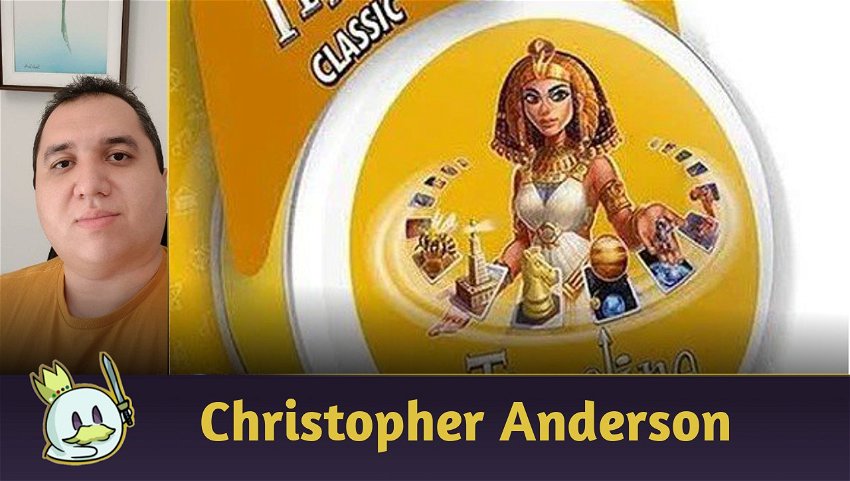







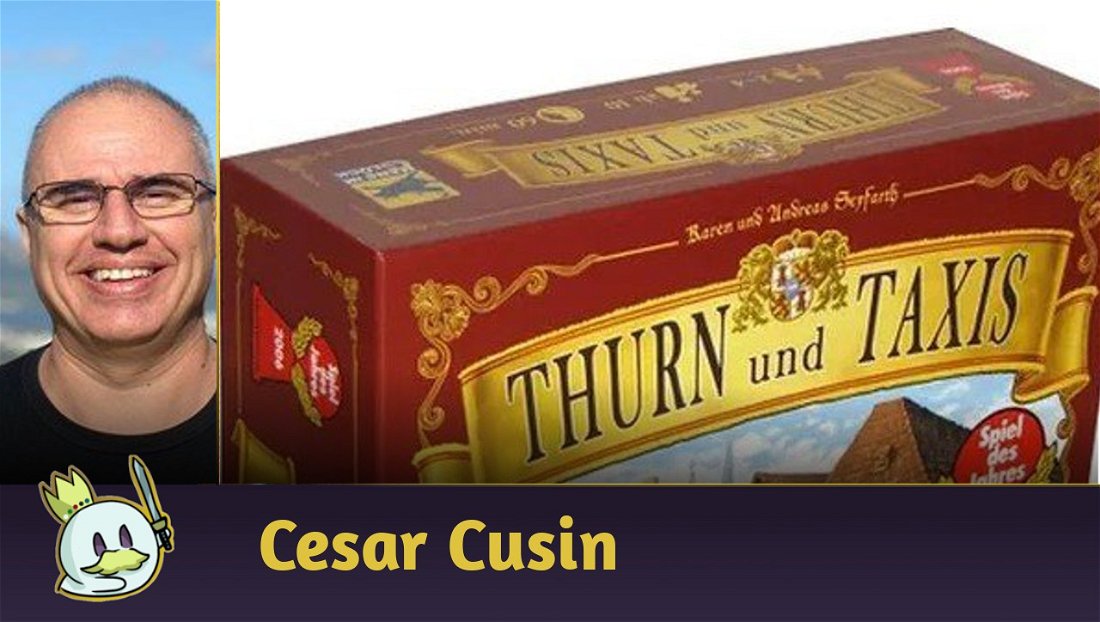
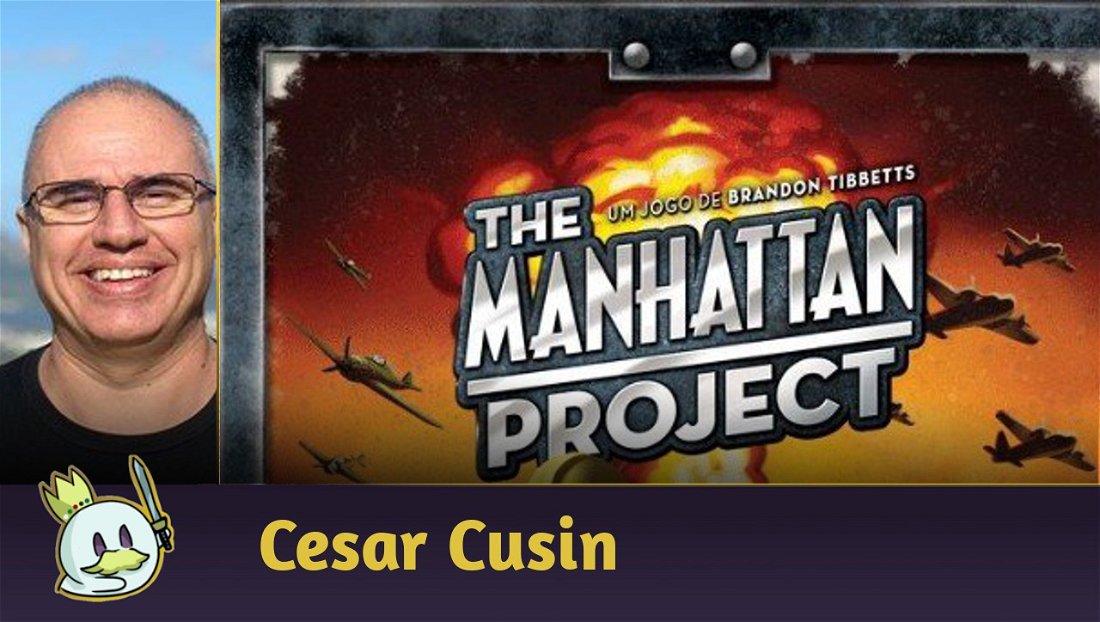



— 评论 0
, 反应 1
成为第一个发表评论的人